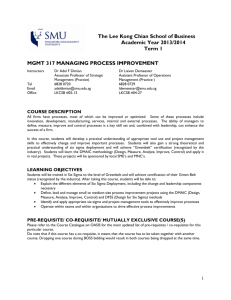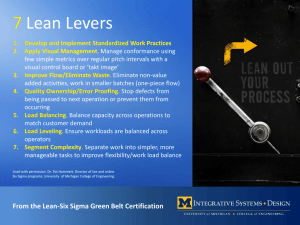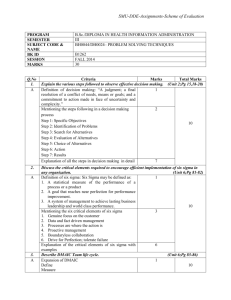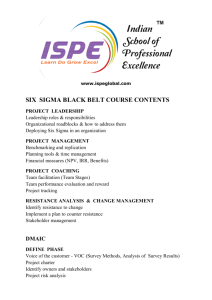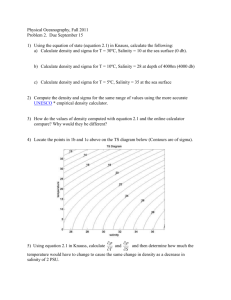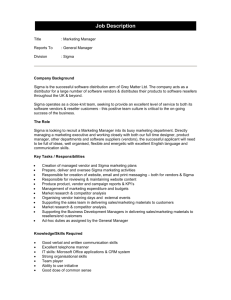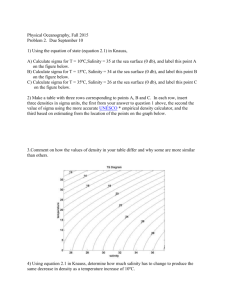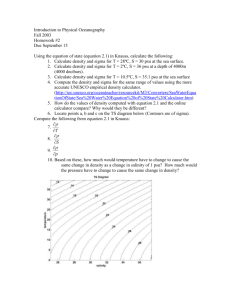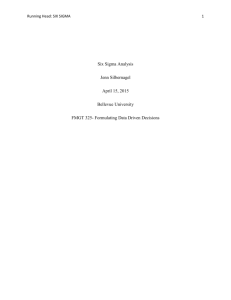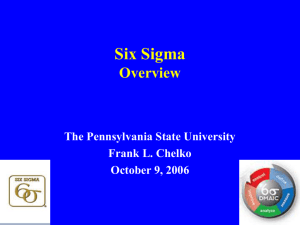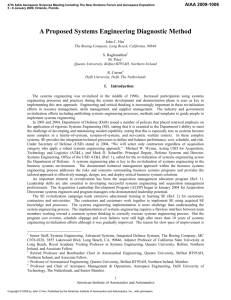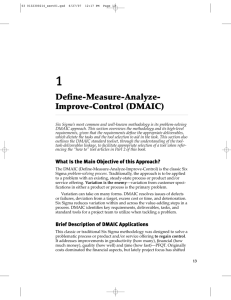MGMT317_Lieven and Adel_AY2014-15 T2
advertisement
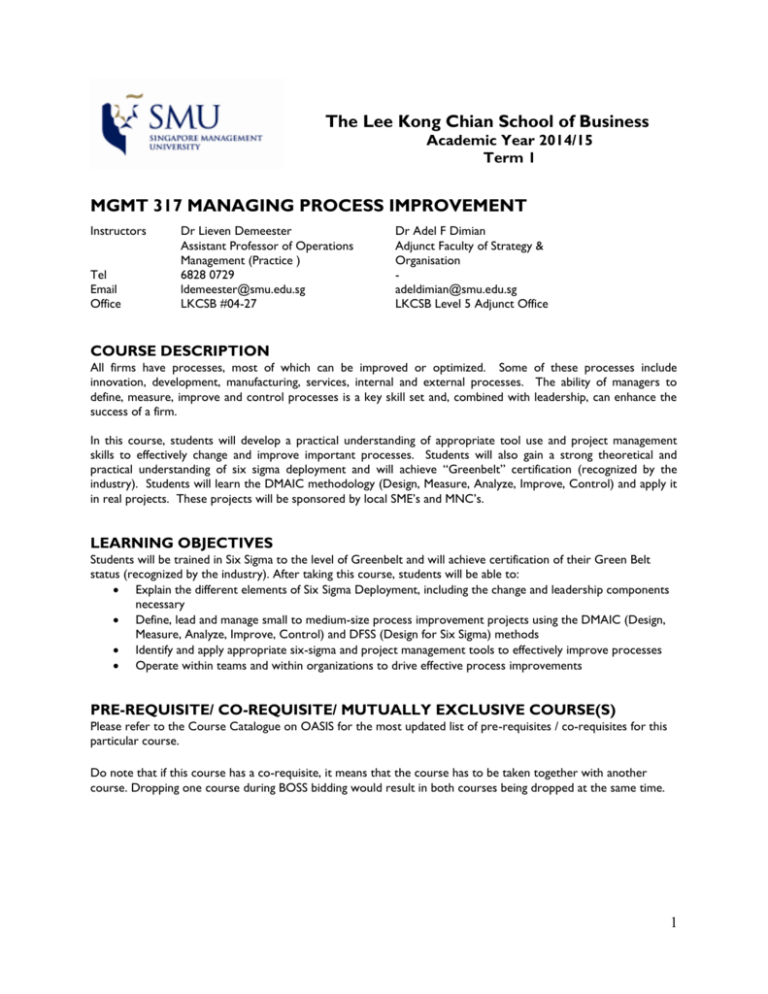
The Lee Kong Chian School of Business Academic Year 2014/15 Term 1 MGMT 317 MANAGING PROCESS IMPROVEMENT Instructors Tel Email Office Dr Lieven Demeester Assistant Professor of Operations Management (Practice ) 6828 0729 ldemeester@smu.edu.sg LKCSB #04-27 Dr Adel F Dimian Adjunct Faculty of Strategy & Organisation adeldimian@smu.edu.sg LKCSB Level 5 Adjunct Office COURSE DESCRIPTION All firms have processes, most of which can be improved or optimized. Some of these processes include innovation, development, manufacturing, services, internal and external processes. The ability of managers to define, measure, improve and control processes is a key skill set and, combined with leadership, can enhance the success of a firm. In this course, students will develop a practical understanding of appropriate tool use and project management skills to effectively change and improve important processes. Students will also gain a strong theoretical and practical understanding of six sigma deployment and will achieve “Greenbelt” certification (recognized by the industry). Students will learn the DMAIC methodology (Design, Measure, Analyze, Improve, Control) and apply it in real projects. These projects will be sponsored by local SME’s and MNC’s. LEARNING OBJECTIVES Students will be trained in Six Sigma to the level of Greenbelt and will achieve certification of their Green Belt status (recognized by the industry). After taking this course, students will be able to: Explain the different elements of Six Sigma Deployment, including the change and leadership components necessary Define, lead and manage small to medium-size process improvement projects using the DMAIC (Design, Measure, Analyze, Improve, Control) and DFSS (Design for Six Sigma) methods Identify and apply appropriate six-sigma and project management tools to effectively improve processes Operate within teams and within organizations to drive effective process improvements PRE-REQUISITE/ CO-REQUISITE/ MUTUALLY EXCLUSIVE COURSE(S) Please refer to the Course Catalogue on OASIS for the most updated list of pre-requisites / co-requisites for this particular course. Do note that if this course has a co-requisite, it means that the course has to be taken together with another course. Dropping one course during BOSS bidding would result in both courses being dropped at the same time. 1 REQUIRED TEXT AND TOOLS George M. L. et al , “Lean Six Sigma Pocket Toolbook”, McGraw-Hill, 2005 Goal/QPC and Oriel Incorporated “ The Team Memory Jogger: A Pocket Guide for Team Members”, Goal/QPC 1995 ASSESSMENT METHOD Project Class Participation Peer Evaluation Final Exam (green belt certification) 40% 20% 10% 30% ACADEMIC INTEGRITY All acts of academic dishonesty (including, but not limited to, plagiarism, cheating, fabrication, facilitation of acts of academic dishonesty by others, unauthorized possession of exam questions, or tampering with the academic work of other students) are serious offences. All work (whether oral or written) submitted for purposes of assessment must be the student’s own work. Penalties for violation of the policy range from zero marks for the component assessment to expulsion, depending on the nature of the offence. When in doubt, students should consult the course instructor. Details on the SMU Code of Academic Integrity may be accessed at http://www.smuscd.org/resources.html. INSTRUCTIONAL METHODS Methodologies o DMAIC (methods for improving existing processes) o Deployment of Six Sigma Projects o Students will embark on a project in teams of four to five students to be completed within the term. Project will use the tools as they are taught. Case Studies o Deployment cases (3M global deployment) o Deployment case (Ivey School, Maple Leaf Foods) o Project Case (Ivey School, Six Sigma Quality at Flyrock Tires) Leadership guidance o Change Management o Leadership Essentials for Project Results o Deployment Leadership Process Improvement Tools - Lectures o Charters o Voice of the Customer o Measurement System Analysis o Statistics Basic Review (assume basic stats is required) o Variation Analysis o Cause & Effect Matrix o Design of Experiments o Failure Modes and Effects Analysis o Crystal Ball Prediction Software or other Monte Carlo Simulation tool o Ubertool o Microsoft Excel 2007 2
